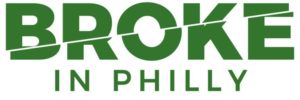As Hilco Redevelopment Partners Begins to Take Over The Infamous Polluting Site, South Philly Activists Wonder About Its Future
Avery Broughton | PhillyThrive | Guest Contributor
Sonya Sanders, a longtime South Philly resident, faced the death of her husband this year due to cancer. “We are living in fear. I just want my family to live,” she said back in 2019.
The cause of all of this? The pollution from the Philadelphia Energy Solutions oil refinery.
Sonya’s family is not the only one harmed by the pollution from that refinery. The EPA’s Toxic Release Inventory estimates that 467,600 lbs of air toxins from the site have been released every year since 2014. As PhillyThrive’s own 2017 #WeDecide community survey shows, neary 34 percent of participants living near the refinery had asthma at some point in their life, compared to the national average of 7.7 percent and nearly 53 percent living near that site “had one or more of the following health conditions: asthma, heart disease, cancer, or another respiratory condition.”
This site, which has caused a profuse number of deaths and exorbitant amounts of suffering, should be used to reverse the 150 years of environmental racism. As the new owners of the refinery site, Hilco Redevelopment Partners has a responsibility to address and lead this effort.
As the Philadelphia City Council closed out a pandemic Spring season considering a budget that slashes Philly parks, libraries and the health department (as coronavirus ravaged the communities that needed those services most), corporations such as Hilco Redevelopment Partners should be paying their fair share of taxes and not be receiving tax breaks. This Thursday, the City Council voted on and approved the extension of a Keystone Opportunity Zone tax break. This was, by no means a victory for Philadelphians, least of all the residents surrounding the PES refinery. This was, instead, a huge tax break for Philadelphia Energy Solutions. By continuing this practice, Hilco is attempting to take from the community using the same land as the PES oil refinery used to rob South Philly residents of their health for decades.
This should not be an option. Right now, many are fighting on the front lines to protect Black lives due to inherent racism and violence. What happened on the refinery land is no different. It is racist and it is violent.
We’d never see the PES oil refinery in a wealthy, predominantly White neighborhood in Philadelphia or surrounding areas. Seventy seven point one percent of the neighborhood around the refinery is made up of people of color according to the Esri Popular Demographics in the United States data set. Even the NAACP’s 2017 Fumes Across the Fence Line report identified the PES refinery as one of the top 8 case studies in the nation of highly toxic industrial sites inflicting horrendous negative health impacts on Black communities. Because of that, Philly is ranked 8 on a Top 10 list of “metropolitan areas by African American health impacts attributable to ozone caused by natural gas pollution.” The report found that the PES refinery site was “… responsible for 72 percent of the toxic air emissions in Philadelphia, which contributes largely to a citywide child-hood asthma rate that is more than two times the national average.”
This type of environmental and public health injustice happens because companies know that they can get away with putting dangerous and polluting infrastructure in communities of color and most people either won’t stand against it or don’t have the resources and support to do so.
Though this land has switched owners, the history still remains. South Philly can’t simply forget about the loved ones they’ve lost due to cancer or how their life was changed by suffering with severe asthma. Philadelphia has the highest rates of cancer out of any large city in the U.S according to The National Cancer Institute. It was also home to the largest oil refinery on the East Coast for 150 years. The implications of this pollution remain, so dealing with it does, as well.
Hilco should not benefit from a financial windfall when communities in South and Southwest Philadelphia have lost their lives due to environmental violence. The city needs to use the taxes earned from the refinery site to invest on things like health care, libraries and parks, and our public schools.
Reversing years of environmental racism on this land also means an end to oil refining and pollution. It is important that we ensure that Hilco establishes businesses that are environmentally and socially responsible. We demand that Hilco engage with community members and leaders in the planning and development of the refinery site. We will not stand idly by when more pollution will mean more deaths and harm to people of color.
We need to be out on the streets protesting to protect Black lives, and we also need to be on the phone, in offices, and in meetings working to amend the systems that have failed us for too long. We must recruit others into this fight as we cannot do this alone. Connect with local organizations (like Philly Thrive) and ask what you can do to help end environmental racism. Our community had a massive win when the PES refinery closed – But, we must ensure, now, that this land is used justly. We must see the future of the refinery site work towards undoing the harmful legacy 150 years of oil refining has left behind.

WURD Radio is one of more than 20 news organizations producing Broke in Philly, a collaborative reporting project on economic mobility. Read more at brokeinphilly.org or follow at @brokeinphilly.



